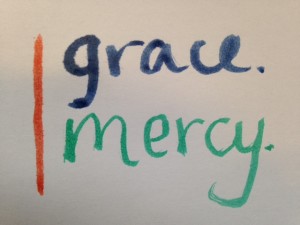I am a Christian. At many times in my life I have been blessed by Muslims and by Islam. I would like to share that blessing. The full series of reflections may be found here.
The fourth blessing is beauty.
The opening verse of the Qur’an sings: “In the name of God, Most Gracious, Most Merciful.”
These words resonate with poetic power in Arabic, with a flow and pulse the English translation cannot reflect: “Bismillah ir-Rahman ir-Rahim.”
These words begin almost every chapter in the Qur’an, reminding the faithful of who God is and who, in submission to God, they are meant to be. Muslims recite these words often. They are present in the mind. They shape the soul.
Islam is a religion of great beauty, of beauty in expression through beauty of heart.
In a Protestant Western culture that grew out of the iconoclasm of the Reformation, we might dismiss beauty as extraneous, unimportant to faith. But beauty is a dimension of the sacred, a way in which God is known to us, and the deep connection of beautiful form and transformative spirituality in Islam indicates that something more than human creativity is at work here.
Here there is grace and mercy. And it is beautiful.
+++
Just listen to this recitation of the names of God in the Islamic tradition.
Hear: Grace. Mercy.
+++
The medieval Persian poet Rumi, a Muslim religious leader in his own time whose teaching resonates still today, spoke of the beauty of God and the life of continuous devotion that God’s beauty inspires:
“There are a hundred kinds of prayer, bowing, and prostration
For the one whose prayer-niche is the beauty of the Beloved.” (Quatrian 81)
Within Rumi’s words, God’s beauty reverberates. It is little wonder that Rumi is the most read poet in the United States today, despite having written centuries ago in a land, a language, and a religious context foreign to most of his contemporary readers.
From long ago and far away, to us here today: Grace. Mercy.
+++
I have a friend who is an artist and a Sufi, in the same mystical tradition of Islam as Rumi.
Her art, like her spirit, is precise and open, very free, beautiful.
I once shared with her how much anxiety I felt about accomplishing all that I could in life. I was not actualizing my potential to my fullest capacity. The world is full of suffering and I was failing to do all that I could to help. I had wasted time. I was overextended and exhausted, but I needed to work much harder. I needed to do more. I needed to be more.
She turned to me and spoke with a gentle firmness that cut straight through my egotism disguised as self-improvement.
“You know,” she said, “it sounds like you are worried you won’t be everything for God. But do you know God is already Everything?”
Grace. Mercy.
+++
While a student in France, I met a Muslim man who invited me to his home for a meal. Friends crowded into his apartment. It was cold outside, and we sat around an abundant spread of food, so delicious, warm and eating for hours. In the course of our conversation, we spoke about the principle of charity in Islam, the obligation of Muslims to help those in need. We talked about how hard it is to know what a person really needs, or how they will use a gift when it is given to them. What is to keep someone from taking the charity I may offer to help them eat, and using it instead to feed an addiction?
“I know a man,” one guest said, “who carries with him everywhere he goes a loaf of bread. He keeps it in his bag. He does this so that when anyone he passes on the street asks him for something to eat, he always has something to give them. It is not money. It does not solve all of the world’s problems. But he does not say, ‘No.’ He always has something to share.”
Grace. Mercy.
+++
The final chapter of the Qur’an proclaims, with beautiful intensity, where refuge may be found from the violence and deception that encircle us.
What is this voice, from outside my faith, that speaks to me what I also believe?
Most Gracious, Most Merciful.

